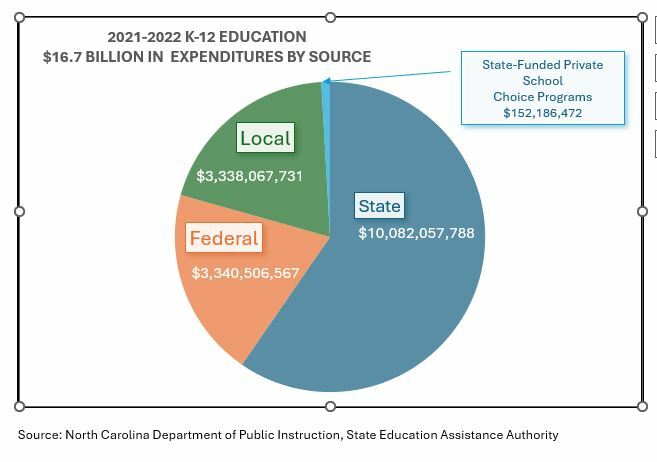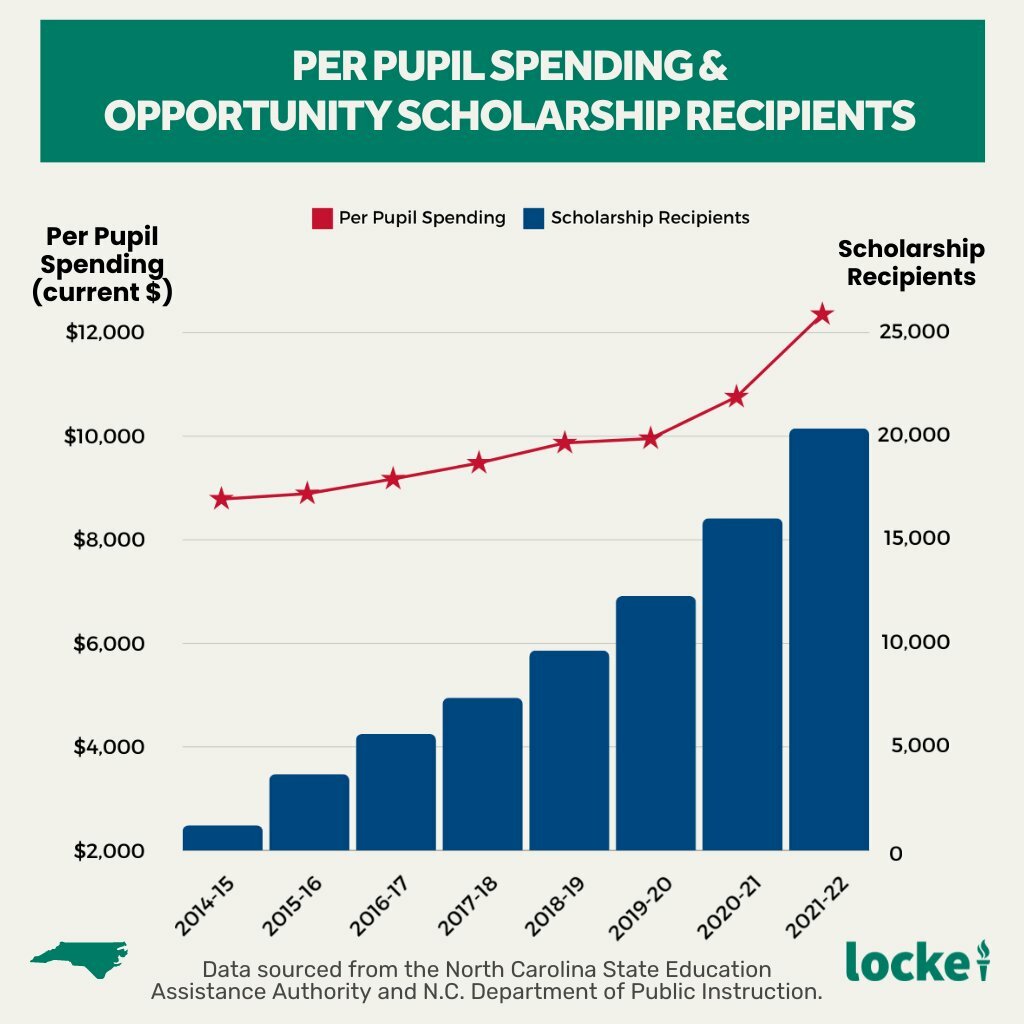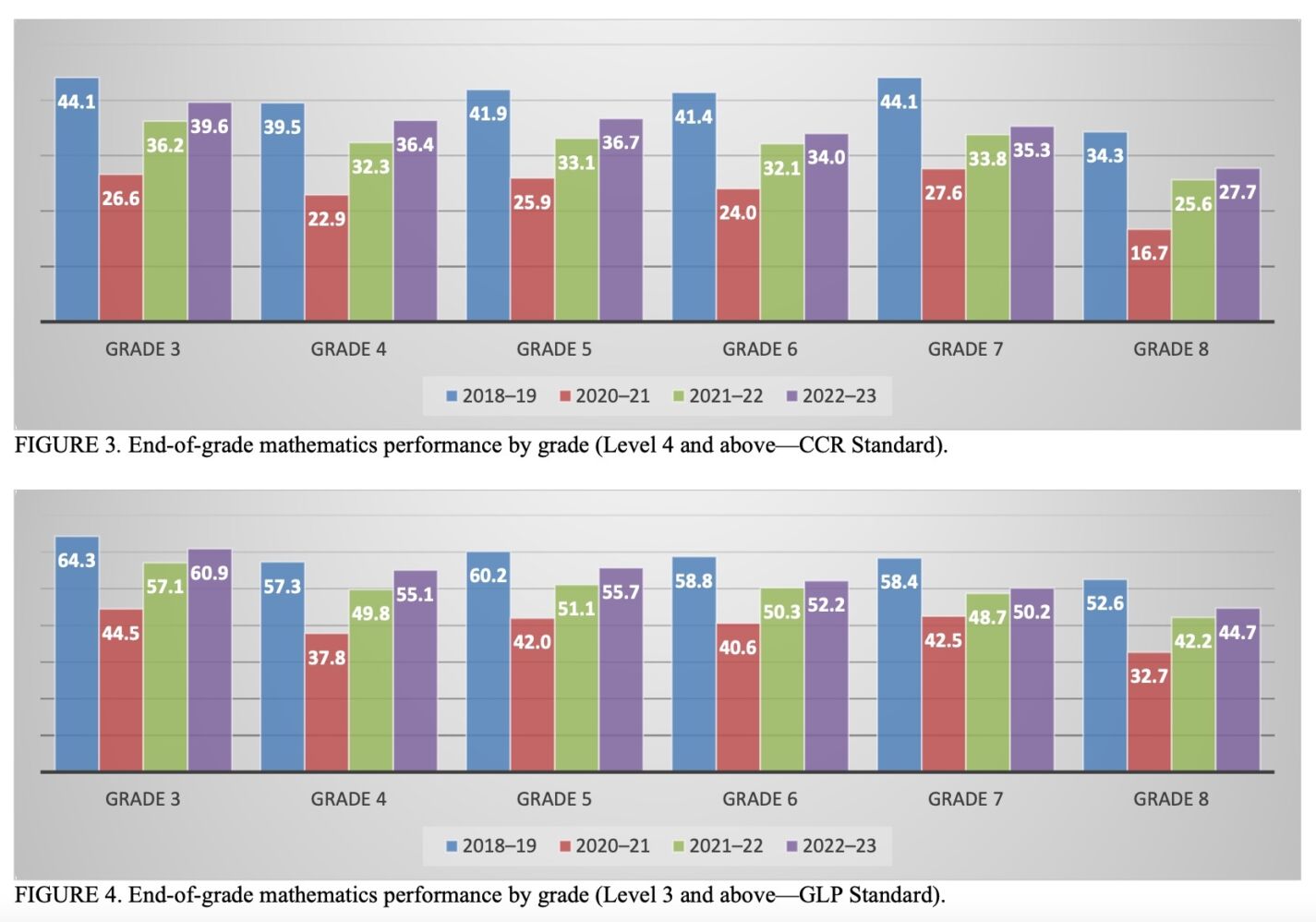- At the recent State Board of Education meeting, Gov. Roy Cooper called for a moratorium on expanding the Opportunity Scholarship Program
- Cooper’s claims about vouchers harming public schools financially and private schools lacking accountability have been repeatedly debunked
- The governor thinks that the interests of the public school system must trump the desires of families seeking better educational opportunities for their children
At the March meeting of the North Carolina State Board of Education, Gov. Roy Cooper called for a moratorium on expanding the Opportunity Scholarship Program. Meanwhile, a record-breaking 72,000 applicants were seeking Opportunity Scholarships.
While it’s unsurprising Cooper spoke against Opportunity Scholarships, it is surprising that he continues to rely on the same old weak, debunked arguments that are not gaining traction with the public.
No, Opportunity Scholarship Expansion Would Not Take Money from Public Schools
Cooper claimed that expansion will cost the public schools $4 billion over the next decade, starting with $200 million next year alone.
The governor is wrong in many ways. Funding for the Opportunity Scholarship Program and awards comes from the University of North Carolina budget (see p. B 41). Even so, on a percentage basis, in 2021–22, state-funded private school choice programs comprised only about 1.5 percent of state K–12 expenditures and about 0.9 percent of all such expenditures (state, federal, and local).

Cooper also said our public schools are “underfunded.” By what measure? State spending on K–12 public schools has increased from $7.7 billion in 2014 (the start of the Opportunity Scholarship Program) to $10.0 billion in 2021–22. Total per-student support has increased during the same time period from $8,477 to $12,345. In inflation-adjusted dollars, state support increased almost 14 percent.

Also, over the last three years, North Carolina public schools received $6.2 billion in federal Covid-relief funds — about double what the state normally receives in federal funding per year. Through January 2024, North Carolina public schools had spent $5.5 billion of those funds, leaving approximately $762 million unspent. Schools spent 54 percent of the funds on salaries and benefits. The rest was divided among supplies and materials (21percent), purchased services (11 percent), capital outlay (10 percent), and other expenses (5 percent).
Even though tutoring is considered the best way to address learning loss, schools spent less than $100 million — just 1.8 percent of Covid funds — on tutoring last year.
Yes, school funding is important, but so is how schools choose to spend it. Poor test scores while school districts decide to spend Covid relief funding on salaries haven’t inspired confidence. The link between spending and improved academic outcomes is weak at best. Why do places like Polk County and Watauga County spend far less per student than places like Tyrrell County or Hyde County — yet have better testing outcomes?
Yes, Private Schools Are Accountable
Cooper claimed that private schools receiving vouchers are “unaccountable.” Hogwash. Those claims have been answered, repeatedly. Schools that accept Opportunity Scholarship recipients must comply with various state laws to ensure academic and financial transparency (see G.S. § 115C-562.5). More importantly, private schools are accountable to parents, who can withdraw their child from a private school if it is not meeting their needs or standards.
In contrast, Cooper thinks accountability is a top-down affair. Schools get money from the government, so the government must use oversight and regulation to ensure that the nearly $17 billion in state, federal, and local funding is properly spent.
That’s the theory. But state test results — a clear metric for assessing accountability — don’t paint a pretty picture.
Would Cooper have enrolled his daughter in a private school if he truly believed it lacked accountability?
According to state test results, while the overall percentages have increased since the pandemic, fourth grade math and reading scores are still concerning and below pre-pandemic levels. In 2023, only 55 percent of fourth grade students met the standard of Grade Level Proficiency in reading. By eighth grade that number had declined to 51 percent. The same pattern was evident in mathematics. The percentage of fourth graders demonstrating Grade Level Proficiency in math was also only 55 percent. In eighth grade, that percentage had dropped to 45 percent.
Only slightly more than half of eighth grade students tested grade-level-proficient in reading

Source: “2022-23 Performance and Growth of North Carolina Public Schools, Annual Testing Report,” published by the North Carolina Department of Public Instruction.
Who has been held accountable for such dismal results? Merely tracking measures with no repercussions when those measures are bleak is decidedly not accountability.
Research Findings of Positive vs. Negative Effects of School Choice Programs on Participants’ Test Scores

Source: EdChoice, “EdChoice Study Guide” (2022)
Lastly, if private schools lack accountability, why has enrollment in North Carolina private schools gone up 10 percent since the pandemic? Would Cooper have enrolled his daughter in a private school if he truly believed it lacked accountability?
No, a Moratorium on Opportunity Scholarship Expansion Would Be a Bad Idea for Many Reasons
The governor is clearly focused on protecting the system against offering children the opportunity of a better education.
Cooper’s moratorium on expanding the Opportunity Scholarship Program would take away not only educational opportunities, but also a real way to help hold public schools accountable.
Schools are funded to educate children. Parents seek Opportunity Scholarships to educate their children — to access schools with better academic, social, or cultural environments than their kids’ assigned public schools. Cooper’s moratorium on expanding the Opportunity Scholarship Program would take away not only educational opportunities, but also a real way to help hold public schools accountable.
Cooper says he’s not against private schools but against taxpayer money going to private schools. Does he also oppose state vouchers for private Pre-K options or state grants and scholarships for private colleges and universities? The governor’s indignation is selective and disingenuous.
The governor talks frequently about the unifying role public schools play in communities. He sees schools as important institutions where children from different backgrounds come together to learn, grow, mature, and become productive, contributing citizens. Students, families, and neighbors come together at school functions, which grows and strengthens community bonds.
Sadly that ideal is not reached in many places. In some communities, schools are sowing discord and division by marginalizing parents, embracing politicized curricula that teaches a negative or incomplete view of our nation, and elevating controversial topics like gender identity, sexual orientation, and critical race theory over math, reading, and other traditional academic subjects. These ideas are fragmenting rather than uniting communities.
Cooper’s heavy-handed Covid policies closed schools across North Carolina, caused widespread learning loss, and inflicted significant social and emotional duress on students. Parents were not blind to what was happening.
These problems fueled the school choice and parental rights movement, which worked to expand the Opportunity Scholarship Program, approve a Parents’ Bill of Rights, and streamline the process for authorizing and expanding charter schools.
Conclusion
Parents want more educational options and more control over how and where their child is educated. Cooper thinks public schools represent a foundational pillar of democracy and therefore opposes parental rights and favors the Opportunity Scholarship moratorium. These developments are really battles over control, accountability, and decision-making authority.
At the root of this entire debate is a very important question: Why are so many families opting to leave the public schools? That Gov. Cooper ignores this foundational question speaks volumes.


